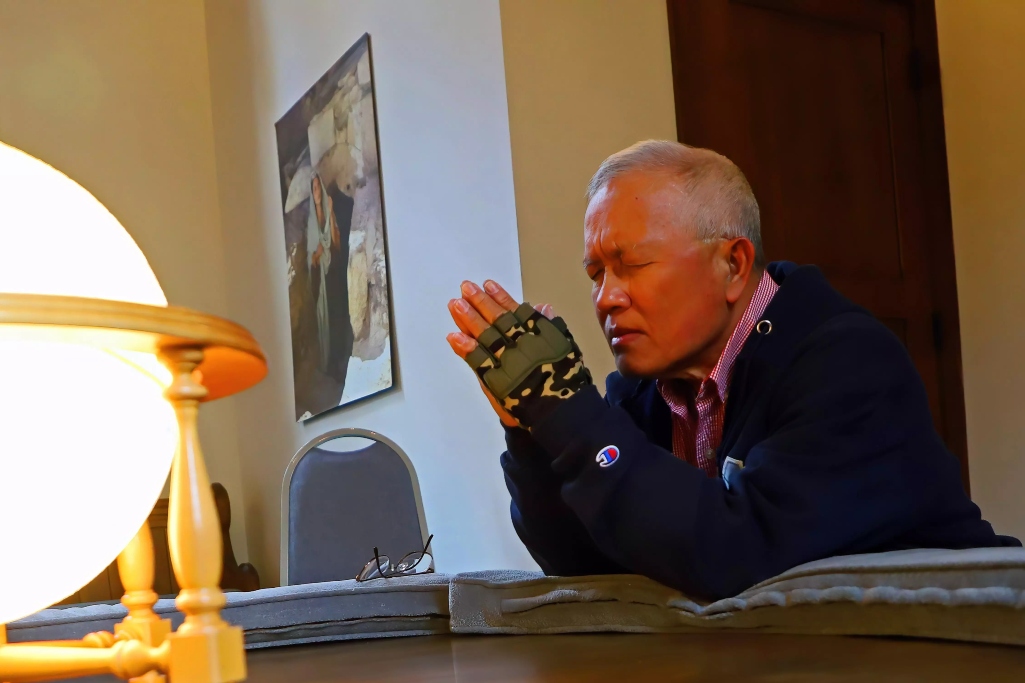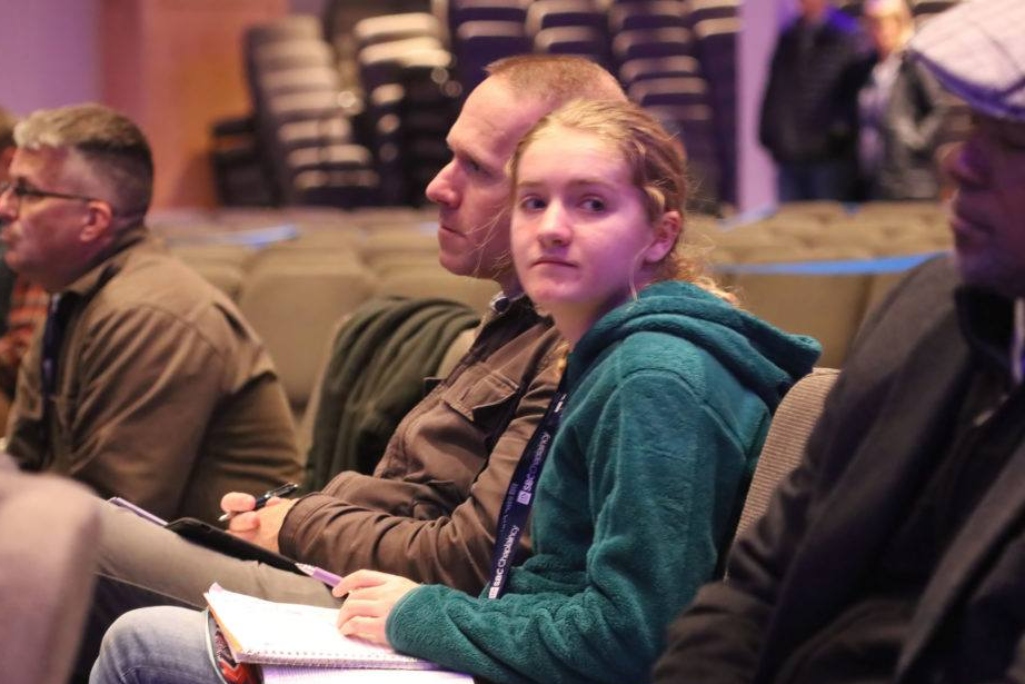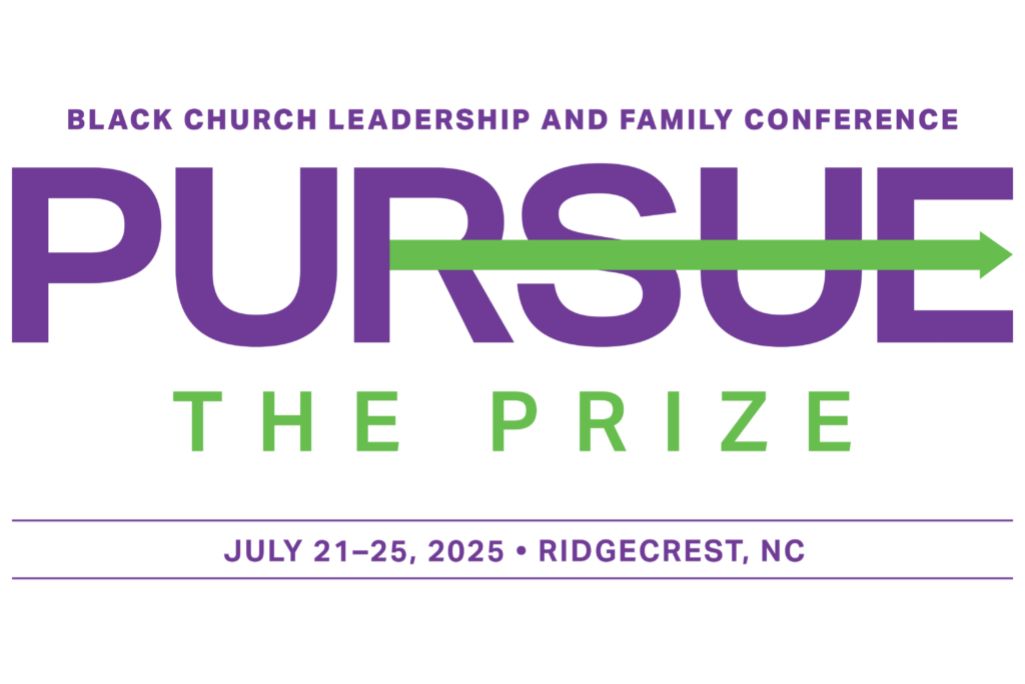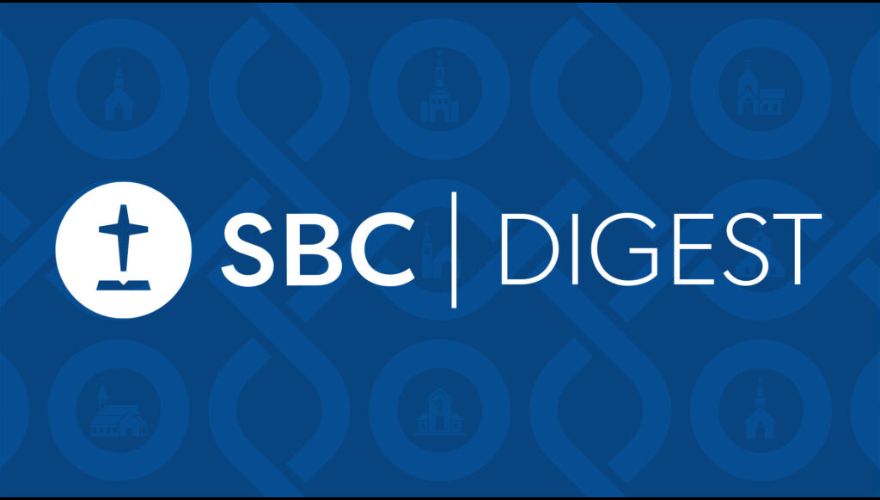
During NAMB’s chaplaincy training event at Ridgecrest Conference Center in North Carolina, chaplains focused on how to better reach those they meet and minister to them with the gospel.
When Chaplain Cathy Tisher’s flight was canceled just minutes before takeoff, she didn’t hesitate. She invited her older sister, who is battling terminal cancer, to jump with her into Cathy’s 2020 Toyota Sienna and drive 1,000 miles from Oklahoma City to the Ridgecrest Conference Center.
The health care chaplain said she did not want to miss the chaplaincy event provided Oct. 17-19 by the North American Mission Board (NAMB).
Neither, apparently, did about 500 chaplains and their families at the regional event. This followed similar chaplaincy events earlier this year in Kansas and California.
“We’ve had an average of 100 to 150 chaplains at these regional gatherings the last several years, and we were thrilled that more than 500 wanted to attend at this training event on evangelism,” said Doug Carver, NAMB’s executive director of chaplaincy since 2012 and retired U.S. Army Chief of Chaplains, a 2-star Major General.
“I think there is renewed interest in the value of our ministry training, which includes denominational updates, prayer times, networking and the fellowship opportunities with others who understand what they’re going through,” Carver said.
NAMB is the endorsing agency for the Southern Baptist Convention. Endorsement by a recognized denomination is a requirement for most chaplains. About 1,500 Southern Baptist chaplains serve U.S. soldiers, sailors, airmen, Marines, Coast Guardsmen and the newly organized Space Force community worldwide. Others serve in law enforcement, health care, corporations, correctional facilities and community entities.
“In the challenging, unfriendly and non-believing world where they live and serve, our Southern Baptist chaplains need spiritual replenishment and encouragement,” said Don Biadog Jr., who retired after 30 years as a Navy chaplain but is still active as a NAMB Chaplain Ambassador and working with veterans in San Diego.
“It was a blessing to hear testimonies of fellow chaplains about their experiences of spiritual struggles and awe-inspiring victories,” Biadog continued. “Most of all, we learned more about the importance of evangelism and the urgent need to share the gospel in our workplaces, communities and our homes.”

As chaplains gathered for a NAMB training event, many had their spouses and children attend. The event included times for wives and children to learn together in breakout sessions as well.
The chaplains professional development training event this year at Ridgecrest focused on evangelism, with sessions led by Matt Queen, professor of evangelism and occupant of the L.R. Scarborough Chair of Evangelism at Southwestern Baptist Theological Seminary in Fort Worth, Texas.
“The purpose was to challenge the chaplains to renew their passion for – and to be more intentional in – evangelism,” Carver said. “Every ministry, every activity, should be pointing those they serve to the gospel. Our chaplains are to be faithful witnesses of the gospel within their institutional setting.”
Kathy Litton, director of planter spouse development at NAMB, led sessions for the chaplains’ wives in attendance. Spring Valley Baptist Church of Columbia, S.C., led the children’s program.
“This was by far the best chaplaincy ministry training we’ve ever had,” Carver said. “God met with our chaplains, spouses and their families over the last three days.”
The chaplains spoke of what they gleaned from the training.
“It was a good reminder to share the gospel,” said Ian Underhile, a Navy chaplain with Special Forces personnel in Hawaii. “Sometimes the tendency can be to get lazy and not ask for a decision. Having spiritual conversations is expected. Bringing people face to face with the gospel can be hard but necessary. I appreciated what our conference speaker, Matt Queen, said, ‘Those who fail to plan to evangelize will fail to have time to evangelize.’”
Michael Johnson is a pastor in Yakima Valley and a chaplain in the Washington Army National Guard.
“One of the takeaways for me, as I go back to my unit and soldiers of my battalion, is that there are a lot of needs and the gospel has a lot to say to those needs,” Johnson said. “It’s not just a way to go to heaven when you die but it’s help for victims of hurt and pain, for those learning to forgive, for those who have real genuine guilt over what they’ve done.”
Tisher, who serves at three care facilities in the Oklahoma City area, said the training reminded her to be evangelistic even when she’s not at work.
“I have opportunities every day in the facilities I serve as chaplain to share the gospel, but out eating? At the grocery store?” Tisher said. “Do I take advantage of those opportunities to share with someone? As Matt Queen said, ‘A good question to ask is, ‘Has anyone told you any good news today?’ If they say no, say, ‘I have good news to share with you.’”
The chaplaincy training included time for worship, fellowship and pastoral care.
“There’s something about sharing your personal story with someone who truly understands,” Carver said. “For those called to chaplaincy ministry to be with others called to this ministry, to be able to talk freely as well as opportunities to pray with and stay connected with other endorsed Southern Baptist chaplains, makes this a special time in itself, in addition to the training.”
David Yang is a fleet chaplain in Japan for the 3-star Admiral of the 7th Fleet, which includes 50-70 ships and submarines, 150 aircraft and 20,000 male and female sailors. He flew from the Yokosuka Naval Base, an hour south of Tokyo, to Ridgecrest for the chaplaincy training.
“This [training] gives me an opportunity to get back to my roots, to be alongside other NAMB chaplains and to hear what’s happening to NAMB chaplaincy overall,” Yang said. “It’s an important time. And the training is important as well. To use Matt Queen’s words, this training helped us get fired up again to make sharing the gospel our top priority.”
Southern Baptists began endorsing chaplains in 1941, when “The Convention saw the need to ensure a faithful gospel presence was available for members of the U.S. Armed Services preparing for World War II,” Carver said. “We’ve been more intentional about the training since 9/11 and the 20 years of combat that followed in Southwest Asia. It seems that chaplains have wanted to get together more often since that time.”
Chaplains serve as extensions of the local church, oftentimes serving in places pastors and other church members cannot go, and usually in stress-filled situations: people suffering loss from a tornado, hurricane, mass shooting, deadly car crash or other tragedy.
“We recruit chaplains out of local Southern Baptist churches who feel called to chaplaincy ministry,” Carver said. “Once vetted and endorsed, they are qualified to represent the faith, beliefs and practices of Southern Baptists in accordance with the Baptist Faith and Message 2000.”
“I was serving at First Baptist Church of Millington, Tenn., [as] children and family pastor,” Underhile said. “It was a big church, wonderful ministry, but I was surrounded by churchy people doing churchy things all the time. I was ready to be around lost people who were hurting or searching and in need of the simple truth of the gospel. Chaplaincy was the perfect complement of serving God and serving my country.”
A NAMB chaplaincy training in Germany is set for Nov. 7-9. NAMB’s Korean chaplaincy training is set for Dec. 5-7.
For more information see namb.net/chaplaincy.
(EDITOR’S NOTE – Karen L. Willoughby is a national correspondent for Baptist Press.)


